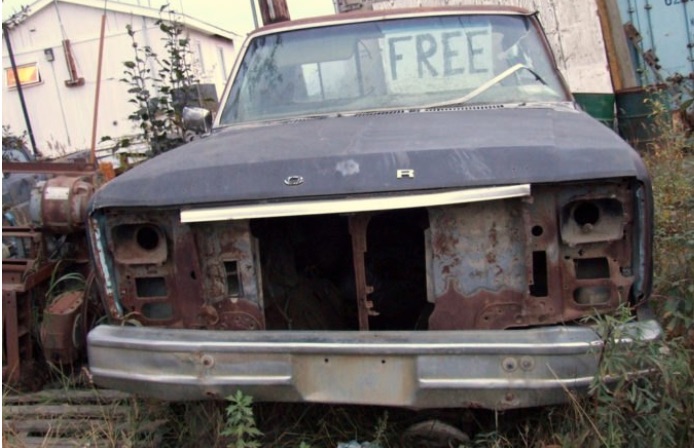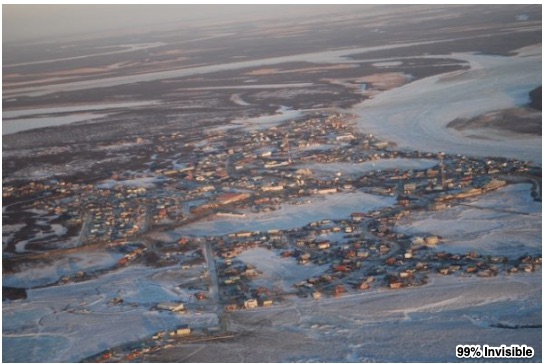In a section of Southwest Alaska, as big as the state of Illinois, you can visit Bethel. A city of 6,500 people, it is the area’s metropolis. For medical care, for shopping, Bethel is where you go. Nearby, 56 Alaska Native tribes live in small groups of several hundred or so.
Visiting Bethel is not quite so easy. Because it is located on a subarctic tundra wetland with a network of ponds and streams, it never connected to the state’s road system. Instead, the only way to access the city is by plane or boat and sometimes a truck when the river is frozen.
You can see that Bethel is in the middle of a lot of water:
The necessities do come in. Cargo planes and barges bring their food, medicine, and cars. However, moving anything in the other direction is the problem. Except for people, little leaves Bethel.
Garbage Problems
It’s too expensive and too inconvenient to ship garbage out of Bethel. So it stays there.
A typical backyard has piles of junk. There are oil drums, wooden pallets, all sorts of items under large tarps. At the landfill, you can find the spare parts you need from the refrigerators, the stoves, and anything else that was abandoned.
To all of this we can add weather conditions that are especially unkind to local roads. The ice that freezes, melts, and then refreezes creates an unimaginable number of potholes and cracks and heaves. The result? Hundreds of dead cars. Vehicles have been left on roads, in public parking lots, and especially at the airport.
Our Bottom Line: Incentives
So yes, in Bethel the incentives can be unusual. You place your junk in your backyard. You abandon your dead car. And the taxi cab business is thriving. At 59, Bethel has (reputedly) one cab for every 110 people because people prefer not to drive their own cars in bad weather and the city’s visitors need a cab when they arrive by plane or boat.
Some say that our incentives on the earth could be more similar to Bethel than we realize. We just do not see our junk piling up.
My sources and more: Thanks to 99% Invisible for the story of Bethel.
Our featured image is from Travis through Flickr.







